Other Omi-Hachiman Sights
|
Title   • File Name • File Name   • Date • Date   • Position • Position   |
|
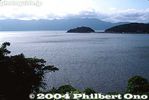
Lakeshore road and Okinoshima island
|
|

Cycling on lakeshore road. There is a scenic cycling path all around Lake Biwa. Takes 2-3 days to cycle around the lake.
|
|
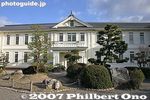
Hachiman Primary School 近江八幡市立八幡小学校
|
|
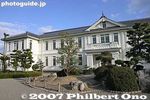
Hachiman Primary School 近江八幡市立八幡小学校
|
|
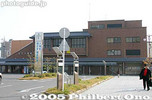
Omi-Hachiman Station
|
|

Bicycle rental station next to Omi-Hachiman Station. You can rent a bicycle until 11 pm so you can stay in town late to see night festivals.Best way to tour the city.
|
|
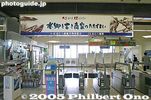
Omi-Hachiman Station
|
|

Mizugahama lakeside coffee shop 水ケ浜
|
|
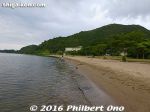
Miyagahama is a quiet, spacious beach to enjoy Lake Biwa.
|
|
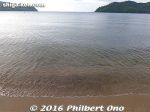
Miyagahama beach
|
|

Azuchi has a cultural complex called Bungei no Sato. It includes a concert hall called Bungei Seminario, the venue of the Yoshibue Concert. If you missed the shuttle bus, you'll have to take a taxi from Azuchi Station. 文芸セミナリヨ
|
|

Yoshibue is a small flute made from reeds grown in Lake Nishinoko, one of Lake Biwa's attached lake. I attended the 4th Yoshibue Concert on April 4, 2009 which was Yoshibue Day.
|
|

Flower arrangement using reeds.
|
|

Yoshibue reed flute, made from reeds growing in Lake Biwa (Lake Nishinoko).
|
|

Inside the Bungei Seminario in Azuchi, Shiga. This hall is noted for a large pipe organ. The yoshibue concert started at noon and ended at about 4 pm. Free admission.
|
|

The Japan Yoshibue Association held a yoshibue (flute made of reeds growing in Lake Biwa) concert on April 4, 2009 which was Yoshibue Day. Various groups playing the reed flute gathered to perform a free concert. This married pair called Hot Line. ほっ�
|
|

Hot Line often appears at various events. He plays the guitar while she plays the yoshibue. 「よし笛の日」定期演奏会
|
|

Part of the stage decoration were these towering bundles of reeds from Lake Biwa.
|
|

Special halftime entertainment provided by a Uyghur dish dancer by a Chinese dancer. She is an graduate student attending Hyogo University. ジャミラ ウライム
|
|

The concert was held by the Japan Yoshibue Association (Nihon Yoshibue Kyokai 日本よし笛協会) formed in 2006.
|
|

Yoshibue Junior Ensemble consisting of kids playing the reed flute. Eighteen yoshibue groups performed. Most of them welcome new members. I saw groups from Omi-Hachiman, Moriyama, Konan, Otsu, Yasu, and Kyoto.
|
|
|

Playing the yoshibue reed flute from Lake Biwa.
|
|
|
|
|
|

This is Mr. Kikui, the inventor of the yoshibue.
|
|

Group from Kyoto called Kawasemi, named after the kingfisher bird.
|
|
|
|
|
|
|
|
|
|

A duo called Lake Reed.
|
|

Kikui-san 菊井 了
|
|

Sign says "Yoshibue Day" which is April 4. "Yoshi" means reed, and both yo and shi can also be translated as the number 4.
|
|

The final number was Biwako Shuko no Uta (Lake Biwa Rowing Song).
|
|
|
|
|
|